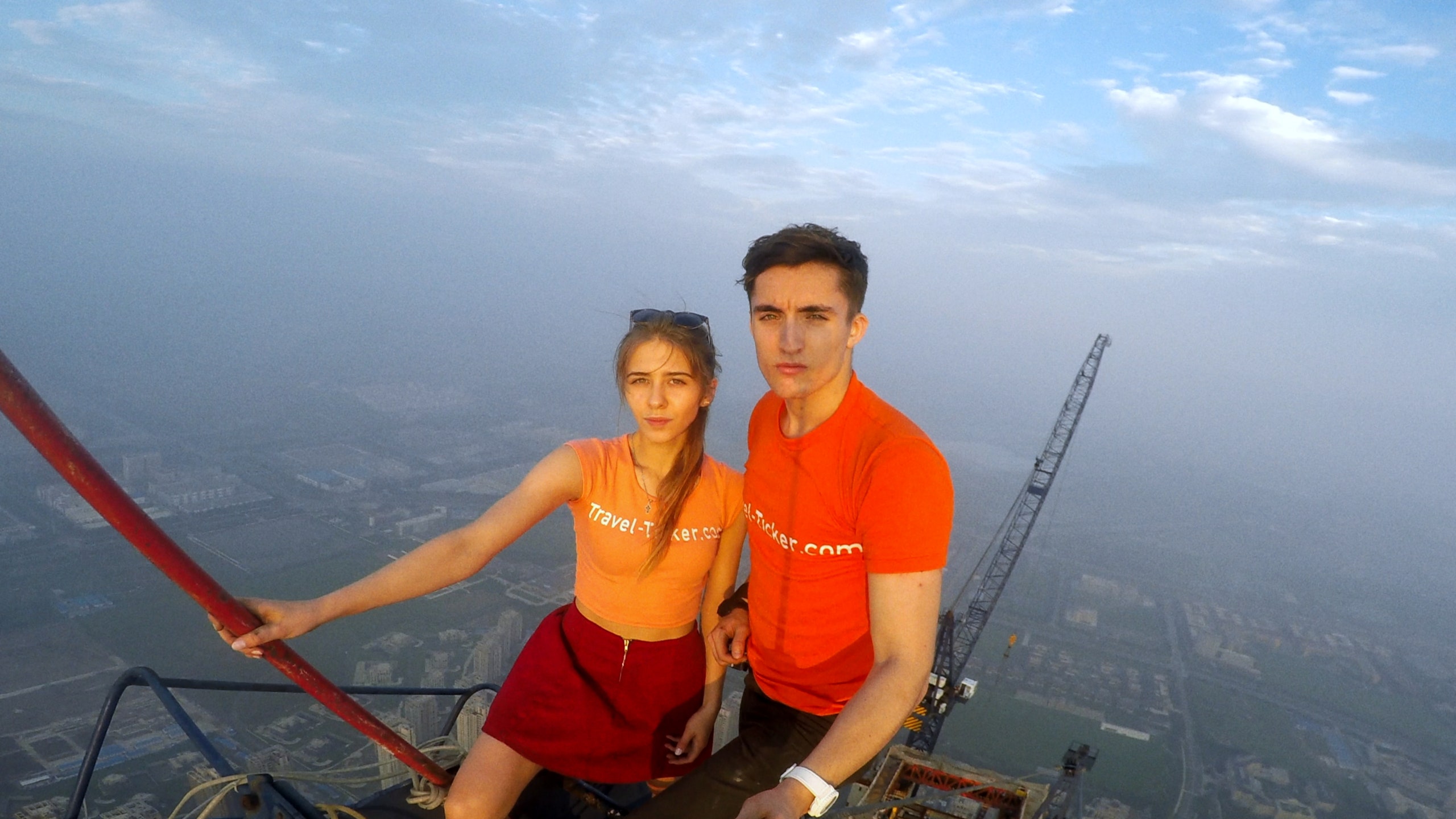"Skywalkers: A Love Story - Influencer Romance Reaches New Heights | Vanity Fair"

There have been documentaries about social influencers before, and certainly there have been longform YouTube videos in which creators attempt to give a cinematic spin to their lives. But there has perhaps never been something quite like Skywalkers: A Love Story, the new film from director Jeff Zimbalist premiering on Netflix on July 19. Skywalkers might be the first of a new genre: extended vlog (or TikTok, or Instragram reel) as feature film, existing somewhere between fact and fiction and all in service of promoting a brand.
That may sound like a negative critique—and in some ways, it is. But Zimbalist’s film is also a wholly compelling portrait of two crazy people who are crazy in love, risking their lives for what they’ve deemed art. The film centers on Angela Nikolau and Vanya Beerkus, a pair of daredevil Russians whose hobby-turned-profession is scaling various urban structures—skyscrapers and bridges, mostly. Captured by GoPro cameras and drones, these exploits have made the couple famous. Or infamous, if you happen to work for a police department in one of the various countries whose laws Nicolau and Beerkus have broken.
Zimbalist’s film finds the pair before they are a romantic item. Nikolau provides her backstory in voiceover: circus performer parents, an innate desire for excitement well past the norm. She and Beerkus initially hook up because he needs a partner for a sponsored video. Soon they are traversing the world together, scaling ever more daring heights to capture vertiginous images of young people caught up in the swoon of their own seeming invincibility. Beerkus, who appears to be from a wealthier family and has a cushy (and sea-level) job waiting for him should he want it, is impressed by Nikolau’s tenacity, but soon grows worried for her safety.
There is something sweet, if rather old-fashioned, in this romance, two post-adolescents of boggling nerve who must negotiate the quotidian balance of a relationship—particularly how their respective genders should govern their dynamic. They must also endure the pandemic and its dire effects on their business—most of their sponsors had been travel industry clients—before gearing up for what might be their biggest stunt yet. They plan to scale Malaysia’s Merdeka 118, the second-tallest building in the world, all the way to the top of its spire.
Thus the film turns into something of a globe-trotting heist thriller, with intricate plans made and a suspenseful infiltration of a heavily guarded superstructure. Zimablist makes fascinating use of the access granted by his subjects’ relentless self-documentation. Skywalkers deftly blends Zimablist’s third-person camera work with the first-person material; the film is a beguiling stitching-together of perspectives. One does wonder, though, what may have been done just for the sake of those cameras, especially a sequence in which a doubting Nikolau stumbles upon a circus and tearfully contemplates her relationship and life pursuits. It’s a poignant moment, but awfully convenient.
What is perhaps most alarming about the way that Skywalkers treads the seam between truth and a murkier counterpart is how little one begins to care about that blurring. The hybrid construction makes for pleasing drama, all centered around those terrifyingly real climbing scenes. One grows to trust that the love passing between these two lunatics is real too, so ardently do they seem to dwell in a clench of existential quandary.
Nikolau is the true lead of the film; her tough defiance is in ever more intriguing conversation with the loose, delicate, self-avowedly feminine presentation of her work. I don’t think you would find such a character in America; she seems wholly born of an eastern tradition that threads a stern conservatism through darkly poetic romanticism. Hers is the demanding passion of a Bolshoi dancer, a sort of graceful rigidity.
She makes quite a case for celebrity. As the film nears its end, that drive to viral fame emerges as perhaps the main raison d’etre for the whole project. Which puts something of a sour note on what has otherwise been a strange and enveloping experience. We hear Nikolau and Beerkus talk about their NFT business—selling exclusive ownership of their photographs and video—earlier in the film, but at the very end it’s at glaring center stage. It’s a disarming, entirely 2020s digital sales pitch, a confidence in a new economy of which people like Nikolau and Beerkus want to be at the center—not for their climbing, but for their marketing.




